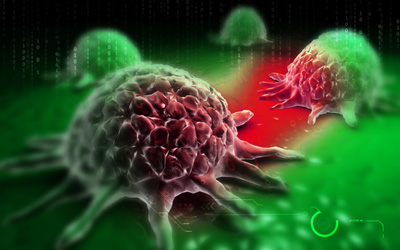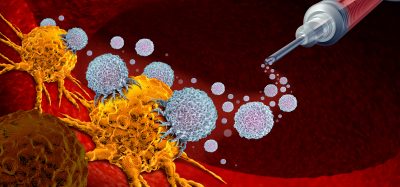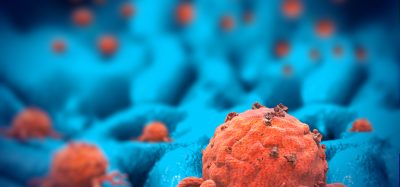Adaptive therapy inhibits chemo-resistance in study
Posted: 25 February 2016 | Victoria White | No comments yet
Adaptive therapy is based on evolutionary principals and aims to keep resistant cells in check by maintaining a population of chemo-sensitive cells…

Researchers hope to improve cancer treatment outcomes with the development of a novel therapeutic strategy, called adaptive therapy, which is based on evolutionary principals and aims to keep resistant cells in check by maintaining a population of chemo-sensitive cells.
The standard strategy for administering cancer chemotherapy has changed very little over the past five decades. Cancer drugs are typically given at the maximum tolerated dose that a patient can tolerate without any life-threatening toxicity. While this strategy works very effectively at killing cancer cells in the short-term, once the chemo-sensitive cells are removed, existing chemo-resistant cells survive and then continue to grow and divide despite the ongoing therapy.
Previously, Moffitt Cancer Centre researchers developed a novel treatment strategy based on evolutionary principals and tested originally through mathematical models. Rather than reducing tumour size with a maximum tolerated dose and leaving only resistant cells, the researchers’ goal was to prolong survival without disease progression. This strategy, termed an adaptive strategy, uses short bursts of therapy to maintain a residual population of chemo-sensitive cells that keep resistant cells in check and prevent them from growing uncontrollably.
According to Robert Gatenby, M.D., leader of the Cancer Biology & Evolution Program at Moffitt, “there is a natural tendency to use high-dose therapy based on the assumption that each patient receives maximum benefit by killing as many cancer cells as possible. However, according to evolutionary principals, high-dose therapy is the least likely to be successful in controlling the tumour for any length of time because it intensely selects for resistant cells and allows them to grow rapidly because the treatment has eliminated all of their competitors. It is hard to get people to think of an alternative approach in which less therapy might actually be more effective over time. We want to try to work with evolution rather than letting evolution be a source of our defeat.”
Adaptive therapy shown to be effective in a preclinical study
A new study reports that adaptive therapy is effective in preclinical mouse models of triple-negative and ER+ breast cancer. The scientists treated mice with the common breast cancer chemotherapeutic agent paclitaxel according to three different treatment strategies: the standard maximum dose (ST), an adaptive therapeutic dose (AT-1) in which the frequency of paclitaxel is the same but the dose decreases as the tumour responds, and a second adaptive therapeutic dose (AT-2) in which the dose of paclitaxel is the same but doses are skipped when the tumour responds to therapy.
The researchers found that all three treatment strategies initially decreased tumour growth to similar levels; however, as soon as the tumours responded and treatment stopped during the standard regimen or was skipped during the AT-2 regimen, the tumours rapidly regrew. Alternatively, treatment with the AT-1 dosing regimen resulted in a long-term stabilization of the tumour to the point that lower doses of paclitaxel could be used and eventually treatment was able to be withdrawn completely. Mice treated with the AT-1 regimen survived significantly longer than the mice in the standard and AT-2 treatment groups.
The study showed that adaptive treatment with the AT-1 regimen increases vessel density and blood flow throughout the tumour. This allows chemotherapeutic drugs to be delivered to the tumour more effectively and reduces tumour cell invasion.
Based on these promising preclinical results, Moffitt researchers have initiated the first clinical trial assessing the efficacy of an adaptive treatment strategy in prostate cancer patients. Abiraterone is an inhibitor of androgen synthesis and is typically given to relapsed prostate cancer patients at the maximum tolerated dose. The research team wants to assess if adaptive therapy with abiraterone extends progression-free survival.
Related topics
Oncology
Related organisations
Moffitt Cancer Centre







